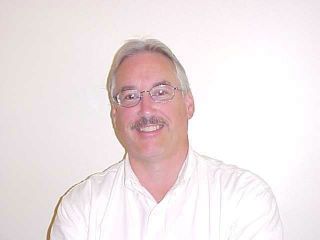If missions was only witnessing …
If missions was only witnessing or only
doing benevolences, we wouldn't need The Master's Mission.
But if missions is establishing and strengthening churches that can accurately and persuasively present Christ, churches that can also reproduce themselves, churches that can train their members to love their neighbors, then preparation like that offered by TMM becomes essential for those embarking on such a mission.
Whether it is doctrinal fidelity or technical ability in building construction, the best preparation is not always accomplished in a strict academic setting. Most of us learn more efficiently through observation and imitation. In changing a tire or sharing the message of salvation, reading a 'how to' manual and actually doing it are two different things. Thus Paul told Timothy, "the things you have learned and received and heard and seen in me, practice these things" (Phil. 4:9). This ongoing practice, especially when supervised by an experienced coach who by his words and modeling can help you improve, is what moves us towards excellence. These kind of teachers, practitioners themselves, represent instructors who are the opposite of those derided by the adage: 'those who can't, teach.' Paul exhorted the Thessalonians to 'excel still more' by continuing to advance in the ideal they had caught from him and the apostolic team in behaving in ways that please God (Thes. 4:1, Berkeley Version of NT).
The church must excel in both the proclamation of the Great Commission and the practice of the Great Commandment. To do so, they must have these kinds of instructors. Truth is more often caught than formally taught. We would never neglect formal teaching times, but recognize that today's leaders have neglected the informal discipling opportunities of sharing life experiences and what should be mature responses to those events with those who are young in the faith or who are being apprenticed for leadership in the church. The Scripture emphasizes both kinds of learning. We have neglected the second. The challenge in missions is not only to find the "Timothy's" who can entrust to faithful men what they have learned from their "Paul's", but it is first in finding the adequate "Paul's" to begin the process. Hence the comprehensive requirements given for qualified church leaders. The help needed determines the skills the helper must have.
Where do churches (in America or on the mission field) need help?
In the same areas where everyone needs help: Marriage, child rearing, finances, dealing with sin and temptation, business ethics, knowing and doing God's will in their setting.
Where do churches (in America or on the mission field) need help?
Finding leaders who can address these issues from the perspective of God's Word, instructors who refuse to cloud or compromise the truth with their opinions. Churches need proper instruction and models to follow in maintaining the purity of truth and devotion to Christ, in rightly responding to the endless needs of their neighbors, and for zeal in application and performance in all these areas of life that please God.
The training program at The Master's Mission is designed to provide both kinds of learning whether it is church "work" or neighborly "work". They see the value of both and refuse to separate them. Many ministries divide these needs, but stand alone evangelism ministries when not linked to local congregations and that don't leave churches that are trained in benevolences are as incomplete as stand alone benevolence ministries that operate independently of local congregations and that don't leave churches to address eternal needs. Unfortunately there are plenty of both.
Mission ministry goes beyond witnessing and benevolences. And so does the training at The Master's Mission! Please join us in praying to the Lord of the Harvest for more laborers.

